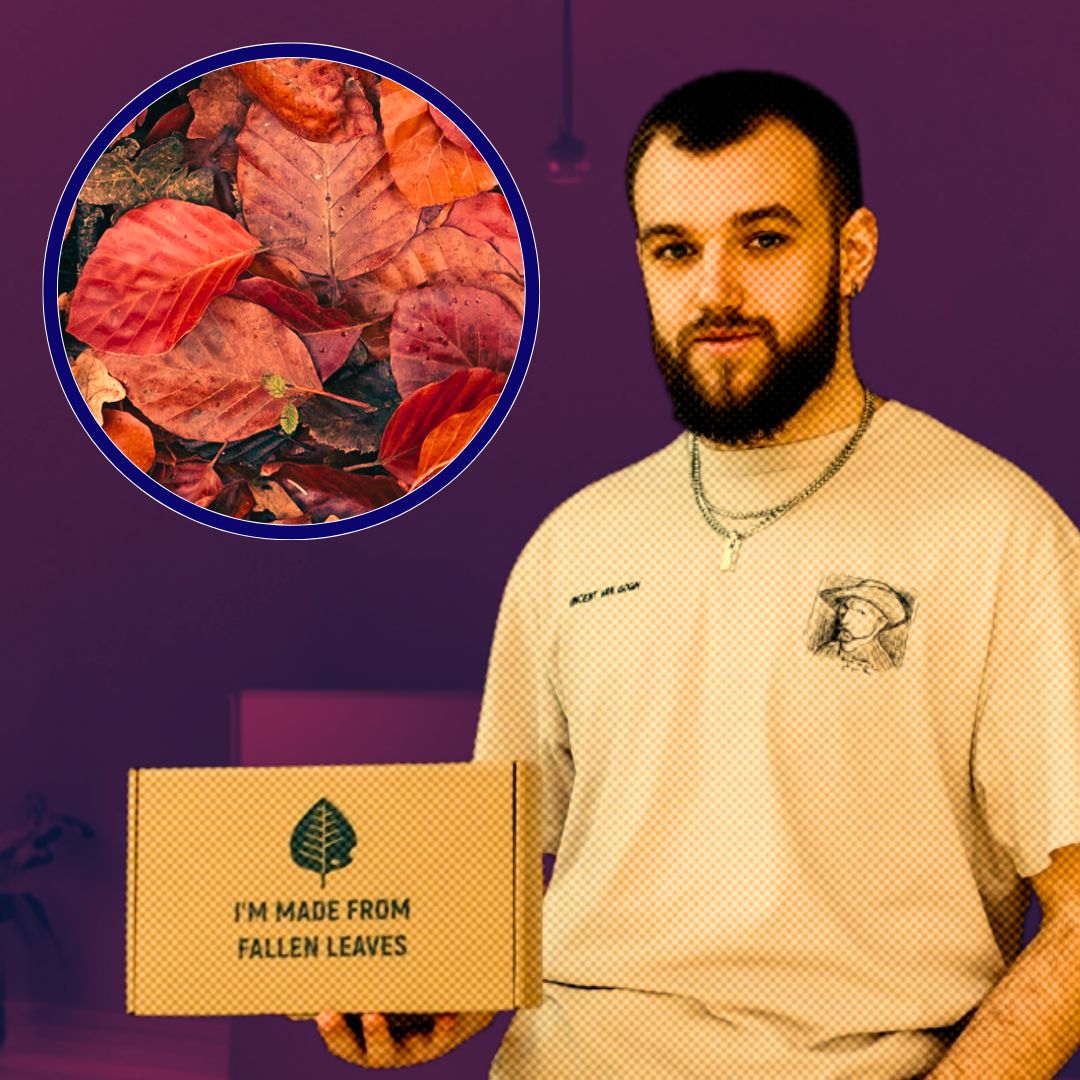In a world increasingly aware of environmental issues, Valentyn Frechka, a 23-year-old Ukrainian inventor, is making waves with his groundbreaking innovation. Through his company, Releaf Paper, Frechka has developed a method to transform fallen leaves into biodegradable paper, addressing the dual challenges of deforestation and urban leaf waste. This remarkable journey showcases not only his ingenuity but also the potential of sustainable practices in the modern economy.

Early Life and Inspiration
Frechka was born in the picturesque village of Sokyrnytsia, where his love for nature flourished. His journey into innovation began at the age of 16 during a hiking trip in the Carpathians. Surrounded by the beauty of nature, he pondered the environmental impact of traditional paper production, which heavily relies on tree harvesting. Inspired by the abundance of fallen leaves, he began to explore alternative sources of cellulose that could mitigate deforestation.

His initial research involved experimenting with various plant materials, but it was during a school project that the idea to use fallen leaves as a resource for paper production took root. This innovative concept would later evolve into Releaf Paper, a startup dedicated to sustainable practices.
The Birth of Releaf Paper
Founded in 2020, Releaf Paper emerged from Frechka’s school project and quickly gained recognition for its innovative approach to sustainability. The company focuses on recycling leaf litter collected from urban areas, transforming it into high-quality paper products. The process not only reduces waste but also provides an eco-friendly alternative to traditional paper manufacturing.
Frechka’s determination led him to relocate to France following the Russian invasion of Ukraine in 2022. This move opened new avenues for collaboration and growth, allowing him to expand Releaf Paper’s reach and impact.

Innovative Technology Behind Releaf Paper
Releaf Paper employs a patented technology that efficiently processes fallen leaves into cellulose. The method involves several key steps:
1. Collection: Leaves are sourced from parks, squares, and other urban green spaces where they would typically be discarded or burned.
2. Processing: The leaves undergo grinding and softening, followed by a mild chemical treatment using sodium hydroxide, hydrogen peroxide, and acetic acid. This process preserves the delicate structure of the leaves while enabling efficient cellulose extraction.
3. Production: The extracted pulp is mixed with bio-fillers to create various products such as bags, cardboard, and packaging materials.
This innovative approach allows Releaf Paper to produce one tonne of cellulose from just 2.3 tonnes of fallen leaves, which would otherwise require cutting down 17 trees using traditional methods.

Environmental Impact
Frechka’s work has significant implications for environmental sustainability:
- Reduction of Deforestation: By utilising fallen leaves instead of wood pulp, Releaf Paper helps conserve forests and protect biodiversity.
- Lower Carbon Emissions: The production process emits only 0.066 kg CO₂ per kg produced—up to 70% lower than conventional paper manufacturing.
- Water Conservation: The method requires substantially less water compared to traditional techniques.
- Waste Management: By repurposing leaf litter that would otherwise contribute to urban waste, Frechka’s approach mitigates landfill overflow and reduces emissions associated with leaf decomposition.
These efforts align with global sustainability goals and demonstrate how innovation can address pressing environmental challenges.
Collaborations and Market Presence
Releaf Paper has attracted attention from major brands seeking sustainable packaging solutions. Partnerships with companies like L’Oréal, Chanel, and Samsung reflect a growing demand for eco-friendly alternatives in consumer goods. The company recently opened its first pilot production facility in the Paris region, capable of processing up to 20,000 tonnes of leaves annually. This facility represents a significant step towards scaling operations and meeting market demand for sustainable products.

Recognition and Awards
Frechka’s innovative work has garnered recognition on international platforms. He was selected as a finalist for the Young Inventors Prize at the European Inventor Award 2024, competing against other talented innovators from around the world. His dedication to sustainability and creativity has positioned him as a leader in eco-innovation.In June 2024, Frechka secured second place in this prestigious competition, further validating his contributions to sustainable development and circular economy practices.
Future Prospects
Looking ahead, Frechka has ambitious plans for Releaf Paper. The company aims to expand its operations across Europe and explore new applications for its innovative technology. In 2025, Releaf plans to seek €8 million in Series A funding to support further growth and technological advancements. Frechka envisions inspiring future generations by demonstrating that innovative thinking can lead to meaningful environmental solutions. His motto—“Do what you can with what you have”—embodies the spirit of resourcefulness that drives Releaf Paper’s mission.

Conclusion
Valentyn Frechka’s journey from a curious teenager exploring nature to an award-winning inventor exemplifies how passion and innovation can converge to create sustainable solutions for pressing global issues. Through Releaf Paper, he not only addresses deforestation but also champions a circular economy by transforming waste into valuable resources.
The Logical Indian’s Perspective
The story of Valentyn Frechka resonates deeply with our commitment at The Logical Indian to foster peace, dialogue, kindness, empathy, harmony, and coexistence within our communities. In an era where environmental degradation poses significant challenges globally, Frechka’s innovative approach exemplifies how individual initiative can lead to positive social change. By turning waste into valuable resources, he not only tackles pressing issues like deforestation but also encourages communities to rethink their relationship with nature.
We believe that stories like Valentyn’s inspire collective action towards sustainability and remind us that every small effort contributes to a larger movement for a better world. How can we further support young innovators like Frechka in their quest for sustainable solutions? Share your thoughts below!











